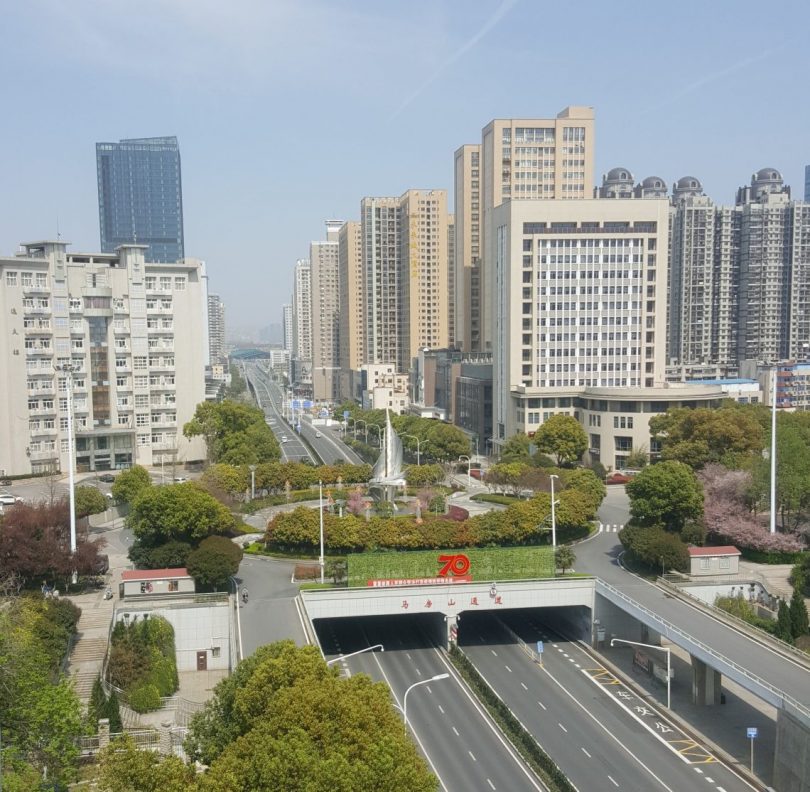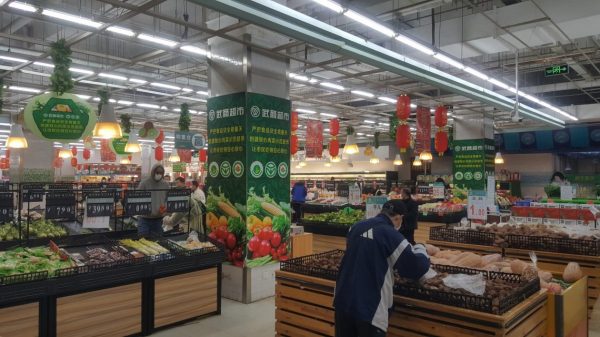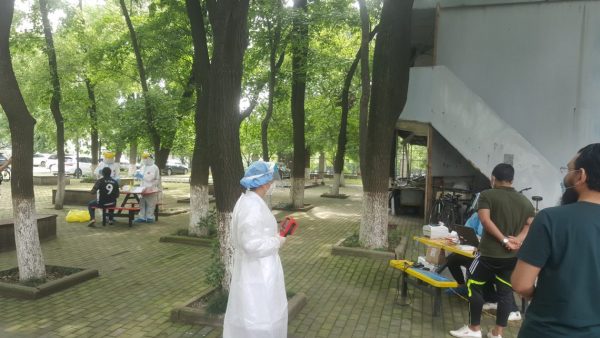Wuhan is perhaps the best-known city in the world in 2020. But in 2018, it was just another large Chinese city, and, for me, where I would be studying for the next two years as the recipient of a Chinese Government scholarship. My objective was to obtain a Masters in Civil Engineering at the Wuhan University of Technology.
I had already obtained my Bachelor in Civil Engineering under the Chinese scholarship scheme from the same university in Wuhan. It’s a popular program, and I met many students from all over the Pacific also studying in China. For me, the decision was simple. There were no undergraduate or postgraduate engineering degrees available in Fiji, with the highest relevant qualification being an Advanced Diploma in Civil Engineering.
Second time round, I was better prepared (or so I thought), with better Chinese, a better understanding of Chinese social mores and politics, and the rules and standards expected of international students.
The first year of studies passed by uneventfully. In September of last year, I began to get serious with my masters thesis and research. It was in mid-December that I became aware from reading the local news apps on my phone of a new flu that started in a wet market. The wet market was located in Hankou district of Wuhan City, across the Yangtze river from where my university and dormitory were; about 20km away.
I wasn’t too concerned with the news of a flu because I had already experienced the bird flu in China back in 2013 and news about viruses spreading is not that new. Health experts stated that the new flu outbreak was under control and that there was no human to human transmission. Health officials did, however, encourage people to physically distance and to wear a mask when going out. Not many people took it seriously at the time. I certainly didn’t.
By mid January 2020, things started to escalate. Infection numbers rose and it was discovered that human to human transmission was possible. There was a lot of speculation about both the severity and the origin of the new virus. But one thing that seemed common was that the world, and indeed other parts of China, saw this as only a Wuhan problem.
The university was about to go on semester break, which ties in with the Chinese New Year (24 January this year). All local students were leaving their dormitories to return home to their cities and provinces. International students would have either remained on campus, returned to their home countries for the break or taken the opportunity to visit other places in China. I for one was planning to travel to Harbin city in February to visit the renowned annual Harbin International Ice and Snow Sculpture Festival.
On the evening of 22 January, we received word from our dormitory manager that Wuhan would be under lockdown at 10am the next day. We were told that all public transportation would be stopped and there would not be any travel into or out of Wuhan city. A lot of questions were now being raised by panicking and worried international students. Most of our questions went unanswered and all we were told was not to try to leave the city and to wait for further instructions.
I woke up in the morning to news coverage on local apps of overcrowded train stations filled with people trying to escape before the Wuhan lockdown. International students who successfully boarded last trains out of the city shared their joy via social media – though I thought there was more of a risk of catching the virus on a crowded train.
It amazed me that the Chinese government was able to lock down a city of 11 million people in less than 12 hours. This was only possible due to the unchallenged control China’s communist government has. International media reported that this was a draconian and extreme move, but personally I felt that it was necessary to control the spread of the virus. Of course, through the course of the year, many countries have since adopted similar measures.
Wuhan began disinfection measures such as spraying the inside and outside of the buildings and providing masks and hand sanitisers to students. Until early February, the lockdown wasn’t that restrictive. Going outside the dorm was discouraged but still permitted.
International news reports during this time portrayed Wuhan as a dead city suffering from food shortages. On 29 January, I walked to a nearby supermarket and saw well-stocked shelves of groceries, fresh fruits and vegetables. Temperatures were being taken by supermarket security and customers were expected to wear face masks. Apart from this, the atmosphere was pretty normal. People were relaxed. There were no incidents of food grabbing or hoarding. The streets were definitely emptier, and businesses that catered for university students were closed with it being Spring Festival and Chinese Lunar New Year on 24 January.
Unfortunately, as the days went on, the lockdown restrictions tightened. All international students were now forbidden to leave campus or even their rooms. All public places were instructed to close, including supermarkets. This was done to control the movement of people, as it was noticed that people were still not taking the precautionary measures seriously. This sudden announcement took international students aback as our university dorms were small confined spaces.
In February many countries began evacuating their citizens, including New Zealand, which offered a helping hand to evacuate Pacific Island students in Wuhan. After much thought, I opted not to evacuate – I thought there was more risk of catching the virus at the airport or onboard the plane and taking it to Fiji. Remaining in Wuhan seemed the smarter choice: almost ten thousand medical professionals and supplies from around China were now all in Wuhan, and the government was building two hospitals in Wuhan in less than two weeks – a feat that only China could achieve.
With all supermarkets closed, most of us had to rely on donated vegetables distributed to us by our universities on a weekly basis. We were introduced to mobile applications that would assist us in buying basic necessities. Our orders would be periodically delivered directly to the dormitory. Being the youngest in my family I had not been taught to cook, but I soon learnt.
As the days progressed, still stricter rules were implemented. Now none but a few were given approval to be outside of their residence. Only people with severe health issues were allowed to visit their local hospital. People on medications were given a three month supply of their prescriptions. The military enforced these new regulations and offenders were dealt with fines and harsh sentences. No one was allowed to enter or exit any residential property without approval. Even university staff were not allowed to come and assist students.
Being locked down for more than 60 days takes a lot out of a person, physically as well as mentally. Different people had different ways to let out their frustrations. Some chose to accept the situation; others vented their anger to their dorm-mates. For me, the hardest thing to take was the wait and uncertainty of when this would all end and life would return to normal and I could see friends and family again.
I spent most of my days trying to focus on my thesis. The Chinese education system acted as if there was no pandemic. All students were expected to submit everything as per the normal deadlines.
Weeks passed and at last news about the decrease in number of daily new infected persons started to be reported. 8 April was the scheduled date for the end of lockdown. Health codes in the form of QR codes that could be read from someone’s mobile phone were provided to people who had tested negative for COVID-19
Unfortunately, these codes were not provided to international students, even after getting the necessary COVID-19 tests done with a negative result, until a much later date. It would be exactly one month later, in early May, that international students in my university were allowed to move out of our rooms. Even then, we had to remain on the campus grounds. It was a strange feeling to be walking around the campus, now empty, but normally crowded with students rushing to class.
It would take another month or so for us to be able to go outside of university campus, and then only after receiving prior permission from the university’s International Students Office Administration. Permissions were only given for urgent matters such as visiting the hospital or going to the Chinese visa office.
In June, I was finally able to step outside the university gates. Even though I felt so relieved to be able to get this moment outside that I had been waiting for months, I could not help but feel confused when I was outside. Everyone was moving around freely – not what we had been led to believe. Using the health codes, everyone could get into malls and supermarkets including, eventually, international students. Apart from everyone wearing masks, life seemed to have returned to normal in Wuhan.
It was soon time to submit my thesis. An online defense was scheduled, which I passed. A small graduation ceremony was held in July.
It was now a waiting game to return home. With borders closed, everyone was told to wait until flights back to their countries resumed. Fortunately, Air NZ had a commercial flight flying once a week from Shanghai to Auckland and onto Nadi. Due to the cost, it became hard to convince my scholarship program to pay for this flight, but eventually they agreed, and I left Wuhan in the first week of August. Now I am back in Fiji, after an uneventful journey and 14 days of quarantine in a hotel in Nadi.
I am not a public health expert, but based on my experience I think China did a good job in trying to contain the virus in Wuhan. I do think that had China closed its borders earlier, the international spread of the virus could have been reduced; and we know now that the initial response in Wuhan was too slow. That said, once the authorities did act, they acted promptly, and in some ways harshly. That said, those measures were necessary to control the situation.
Personally, I feel that I was tested, and that I endured. The lessons I learnt from those difficult times are ones that will hold me in good stead as I now look for a job in these hard economic times.
This post is part of the #COVID-19 and Asia series and the #COVID-19 and the Pacific series.





Totoka Varun. Why were international students treated differently?
Indeed China did what was necessary to contain the virus. The efficiency on how they went about it is wow…. just wow.
Congrats again on your achievements, both academically and just enduring being confined in your room. Life lessons eh.
Thanks Varun for this highly informative and first-hand experience of surviving Covid-19 in Wuhan, the epicentre of this epidemic. There are many lessons for all of us from your experience: one that stands out for me is that staying put and persevering can pay handsome dividends. You have this knack that many of us sorely lack!